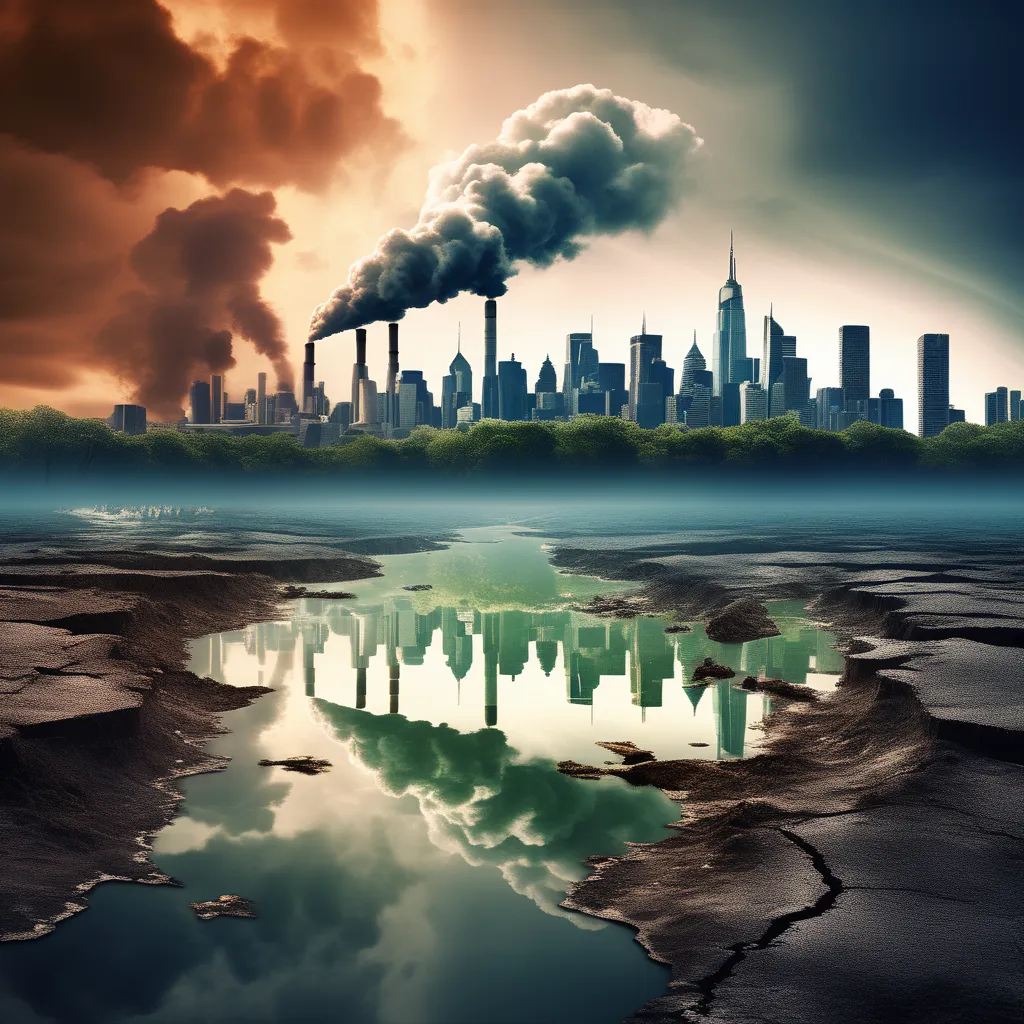Understanding Climate Change Denial: Causes and Effects
In the face of overwhelming scientific evidence supporting climate change, the persistence of climate change denial is a puzzling phenomenon. Unraveling the causes and effects of climate change denial is essential for fostering informed conversations and mobilizing collective action. Let's delve into this intricate topic, exploring the underlying reasons people deny climate change, and the consequential impacts on our planet.

A Dinner Conversation: Unveiling Denial Patterns
The Lightbulb Moment
A seemingly innocent dinner conversation with friends turned into a revelation about climate change denial. Despite a consensus on various topics, climate change became a contentious issue. It sparked a curiosity to understand why, despite mounting evidence, some individuals vehemently deny the reality of climate change.
Cognitive Dissonance: Protecting Belief Systems
The Comfort of Familiar Beliefs
Cognitive dissonance plays a significant role in climate change denial. The discomfort of accepting that human activities contribute to environmental degradation can clash with established belief systems. My own reflection on resistance to change highlighted the human tendency to protect familiar beliefs, even in the face of overwhelming evidence.
Influence of Ideological Affiliations
The Political Divide
Climate change denial often aligns with political affiliations. In my exploration, I discovered the stark divide between conservative and liberal views on climate change. The issue became entangled in broader ideological debates, making it challenging for evidence-based discussions to cut through the political noise.
Industry Influence and Lobbying
Dollars Over Degrees
The influence of powerful industries cannot be ignored in the climate change denial landscape. Anecdotes of corporations prioritizing profits over acknowledging climate change raised questions about the role of vested interests. The impact of lobbying and misinformation campaigns on public perception became evident, shaping narratives to serve economic agendas.
Psychological Distance from Consequences
"It Won't Affect Me"
Denial often stems from a perceived psychological distance from the consequences of climate change. In a conversation with someone expressing climate skepticism, the sentiment "it won't affect me" resonated. Understanding this psychological barrier is crucial in addressing denial, as it reveals a disconnect between acknowledging a global issue and recognizing personal implications.
Fear and Anxiety: Coping Mechanisms
The Overwhelm Factor
Climate change can evoke fear and anxiety about an uncertain future. For some, denial becomes a coping mechanism to shield themselves from the overwhelming magnitude of the problem. My realization of this emotional aspect underscored the need for empathetic communication to bridge the gap between fear and constructive engagement.
Media Influence and Misinformation
Navigating the Information Landscape
Media plays a pivotal role in shaping public opinion. An exploration of news sources revealed how misinformation can thrive, sowing seeds of doubt about climate change. Understanding the influence of media narratives became a call to scrutinize information sources and advocate for media literacy to combat climate change denial.
Social Dynamics and Conformity
The Influence of Peer Groups
Human beings are inherently social creatures, and our views often align with those of our peer groups. An observation of how social dynamics influence opinions highlighted the power of conformity. Climate change denial can be reinforced within certain communities, creating echo chambers resistant to new information.
Consequences of Climate Change Denial
The Ecological Toll
The effects of climate change denial are not confined to debates; they reverberate in the natural world. Rising temperatures, extreme weather events, and loss of biodiversity are tangible consequences. Reflecting on these consequences fueled a sense of urgency to address denial and its real-world impacts.
The Importance of Constructive Dialogue
Bridging Divides for Collective Action
Understanding the causes of climate change denial is a crucial step, but it's equally important to foster constructive dialogue. Personal experiences of engaging in respectful conversations revealed the potential for building bridges. It emphasized the importance of empathy, shared values, and finding common ground to mobilize collective action.

Conclusion: Navigating the Path Forward
Climate change denial is a complex phenomenon rooted in cognitive, social, and emotional factors. Acknowledging this complexity is key to fostering open conversations that bridge divides. As we navigate the path forward, it's imperative to address the root causes of denial, promote media literacy, and cultivate a collective commitment to environmental stewardship. The urgency of the climate crisis demands a united front, transcending ideological differences for the sake of the planet we call home.<

No comments:
Post a Comment